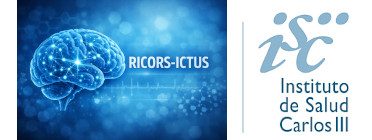Ruiz Ares G, Martin Alonso M, Rigual R et al. Digit Health. 2025 Jan 29;11:20552076251314551. doi: 10.1177/20552076251314551. PMID: 39882017.
Abstract:
Introduction: New technologies could play a role in post-stroke aphasia (PSA). Our aims were to develop a digital tool; to evaluate its acceptance and usability by patients and caregivers; and to demonstrate its effectiveness in improving language skills in patients with PSA, applying it from the acute phase. Methods: The study consisted of two phases: development of a digital tool; and an interventional before-and-after study. During the first week of admission, the digital tool, VerbalizAPP®, was installed for use with the help of family/caregivers. PSA was evaluated by a summarised version of the Boston Diagnostic Aphasia Examination (sBDAE) with 0–64 points. After 3 months of using VerbalizAPP®, the sBDAE and scales to assess user satisfaction were applied. Results: Forty patients (29 men, mean age 68.3 years) were included. Aphasia description: Broca’s 12 (15.0%), Wernicke’s13 (32.5%), mixed/global 15 (37.5%) cases. Patients began using VerbalizAPP® 4.8 days (range 2–7) after stroke onset. A significant improvement in sBDAE scores was found after 3 months of VerbalizAPP® use: 35.1 (SD 17.6) versus 51.1 (SD 14.4) points; p <.001. Academic level was the only baseline parameter related to outcomes. Comfort of use scored 8.8, and complexity 2.2 points. Expectations were exceeded in 61.1%, and impression of improvement in 83.3% of cases. No adverse effects were reported, and all participants would recommend VerbalizAPP® to other patients. Conclusions: Our results show the effectiveness of VerbalizAPP® for the treatment of PSA. However, larger prospective validation studies should be conducted to recommend its widespread use.
Funding: The authors disclosed receipt of financial support for the research, authorship, and/or publication of this article from the RICORS network under grant RD21/0006/0012, Spanish Ministry of Health-Carlos III Health Institute (ISCIII) and the Next Generation EU funds (Recovery and Resilience Plan).

